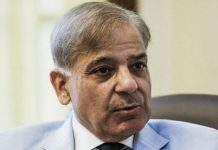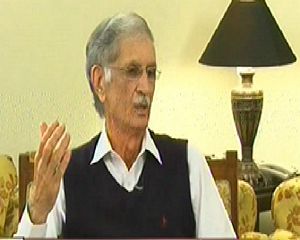LAHORE: Lahore University of Management Sciences (LUMS) Centre for Water Informatics and Technology (WIT) organised a training session to enlighten students on water science, policy and governance on Thursday.
The three-day workshop, organised in collaboration with Lead Pakistan and Nestle, discussed key issues in Pakistan’s water security and creative solutions for water sustainability and efficiency.
The workshops hosted over 130 participants from national and international universities, including students and professionals working in the fields of water management, climate science, and agriculture.
Leading water experts including Dr Pervaiz Amir (Global Water Partnership), Rao Irshad Ali Khan (Chairman IRSA), Dr Arif Anwar (International Water Management Institute), Dr Hassan Abbas (Lead Pakistan), Dr Muhammad Javed (Punjab Irrigation Department), Feisal Naqvi (Haidermota BNR), and Rafay Alam (Saleem, Alam & Co.) delivered speeches on the occasion.
Students from LUMS, Government College University, Bahauddin Zakaria University, University of Poonch, Forman Christian College University, University of Punjab, Kings College and University of Sussex attended the workshops. Professionals from public and private sector, and from non-government organisations, including the Ministry of Climate Change, Punjab Irrigation Department, Lead Pakistan, Helvetas Swiss Pakistan, Nestle Pakistan and Coca Cola Export Pakistan also took part in the training.
WIT Director Dr Abubakr Muhammad said, “Centre for Water Informatics and Technology’s research has been critical in building the water sector’s capacity, closing the gap between academia and practice, and in establishing fruitful cooperation between the academic community and industry, development agencies, non-government organisations, public administration, local communities, and other relevant institutions.”
A combination of lectures, panel discussions, interactive surveys and role play stimulations were held to engage the participants during the workshops. A huge number of technical, economic, and public policy issues in the water sector, including hydro-diplomacy, interprovincial water issues, groundwater management and water laws in Pakistan, remained the key areas of discussion and debate.







.jpg)





